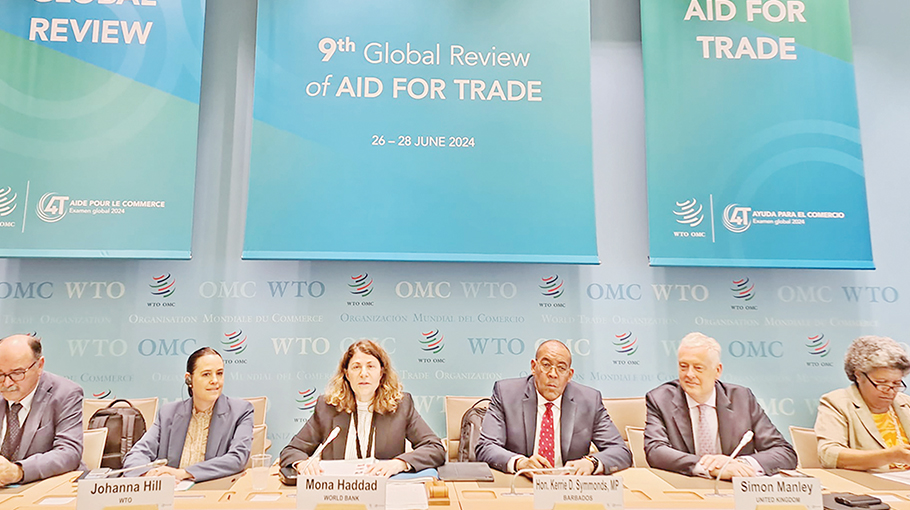WTO-World Bank joint work programme on trade in services unveiled

A joint programme of activities by the WTO and the World Bank to assist developing economies in services trade was unveiled during a panel session at the Aid for Trade Global Review.
WTO Deputy Director-General Johanna Hill unveiled on 26 June.
This programme is a follow-up to the recommendations contained in the joint publication “Trade in Services for Development” launched by the two organizations in 2023. The joint work programme seeks to tackle some of the challenges that developing economies are facing in unlocking the benefits of services trade and harnessing the sector's export potential. “For many developing countries, prospects for export-led growth now lie to a much greater extent in services,” DDG Hill noted. “The ability to supply, access and export efficient services has become central to the realization of development strategies.”
“This session marks a key step in the WTO and the World Bank collaboration on services trade. Together, we are taking concrete actions to advance a 'Trade in Services for Development' initiative.” “Trade in Services for Development” underscored the significant and multifaceted development impact of trade in services and the important opportunities it offers developing economies. The report said increased levels of Aid for Trade in services are required to help developing economies take fuller advantage of the growth and development opportunities presented by services trade. The announcement was made during a session of the Global Review on the development promise of trade in services.
Moderated by Mona Haddad, the World Bank's Global Director for Trade, Investment, and Competitiveness, the session also featured Kerrie D. Symmonds, Barbados' Minister of Foreign Affairs, Ambassador Simon Manley from the United Kingdom, Ambassador Mere Falemaka from the Pacific Island Forum Secretariat, and Bernard Hoekman, Professor at the European University Institute.
This initial work programme is composed of four related components. The first is the preparation of a user-friendly Competitiveness Diagnostic Tool to help developing economies assess their competitive strengths and weaknesses in services trade, define their overarching national services trade policy objectives, and identify and prioritize technical assistance needs.



